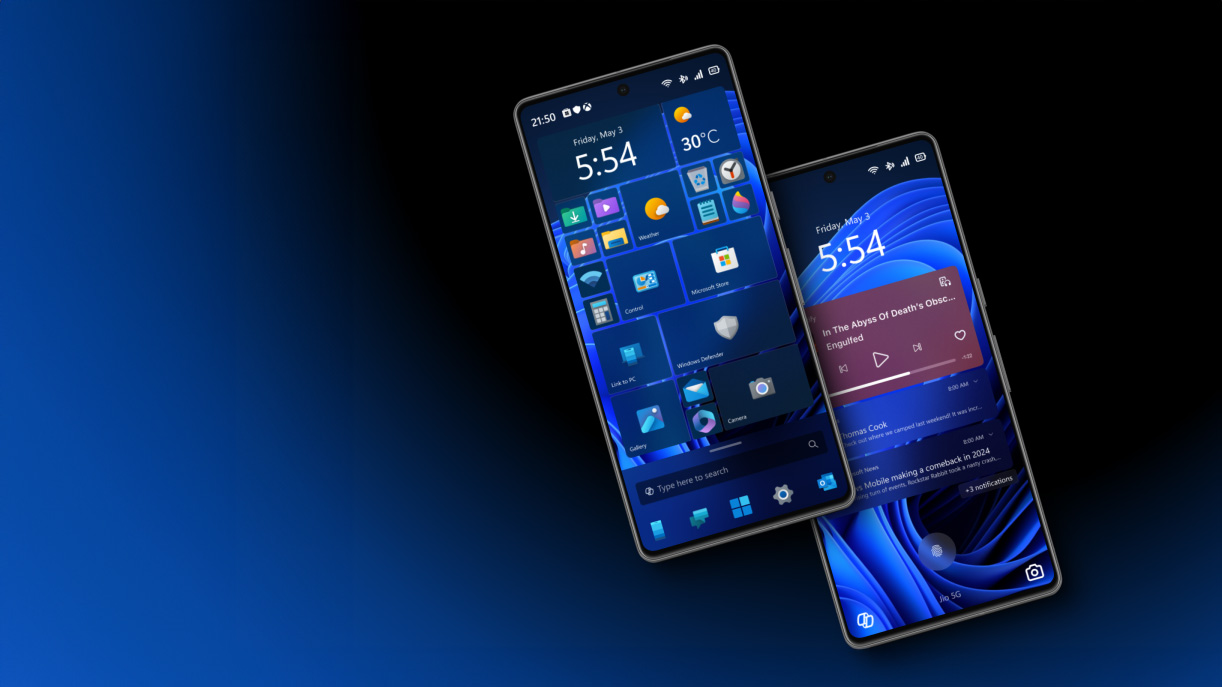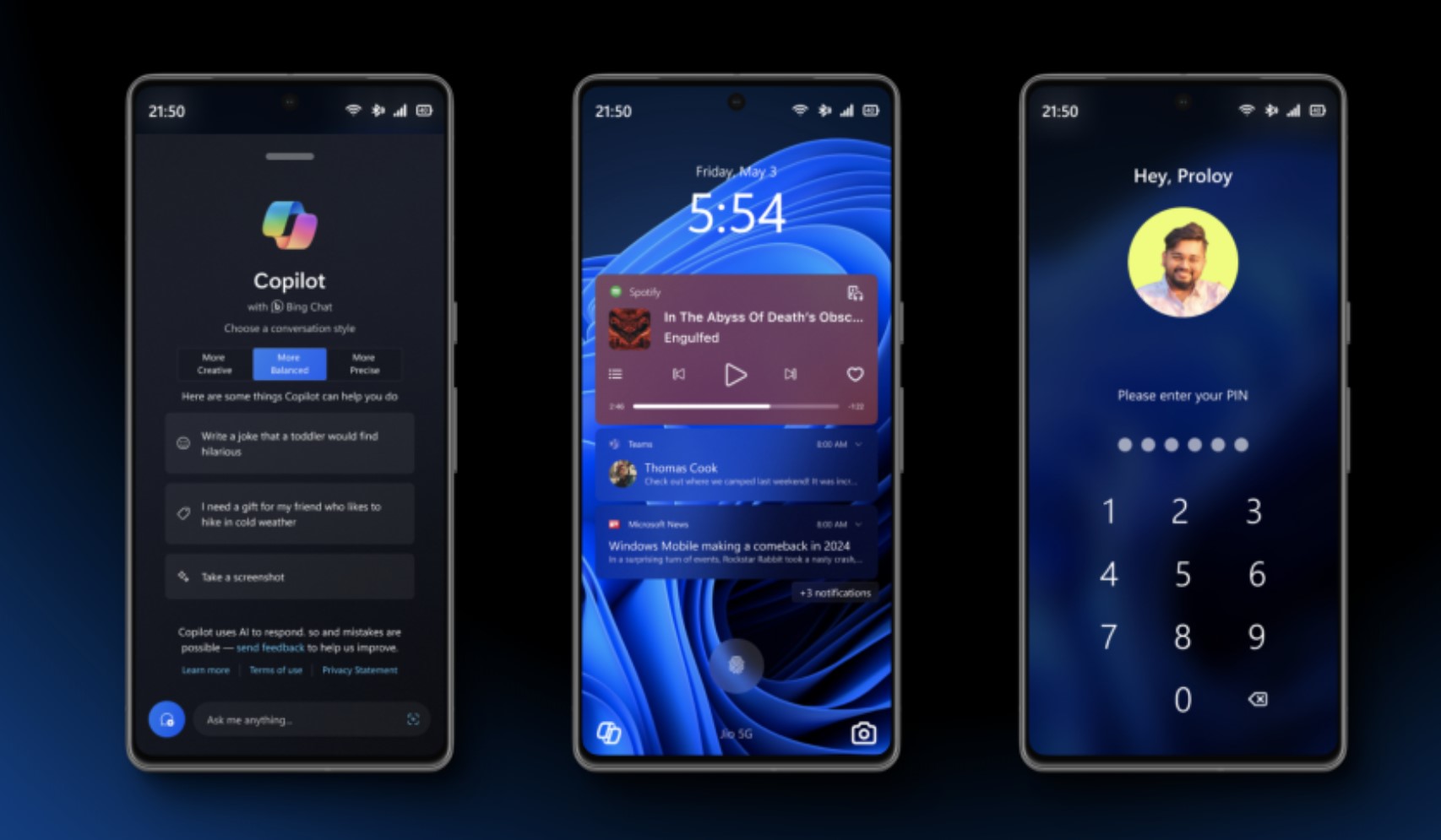
What you need to know
- Windows Phone is dead and I won't let it go.
- Microsoft killed Windows Phone in a tweet a few years back, throwing away years of developer work and billions of dollars in investment.
- Microsoft dabbled with Android and the Surface Duo range, but that seems to be dead too, now.
- Despite Microsoft's phone hardware efforts being dead, we can still dare to dream, proven by designer Proloy Karmakar.
In an alternative universe: the year is 2024, Windows 11 Mobile just overtook Apple iOS in global market share, clinching 31% of the phone using masses. More affordable devices that don't compromise on overall quality proved incredibly popular with businesses, owing to seamless integration for device management via Azure Active Directory. The devices also became increasingly popular with the every day consumer, too, owing to superior AI-powered camera technology, alongside sleek but heavily customizable user interface.
The app gap is no longer an issue, as progressive web apps became increasingly powerful, complete with direct hooks into the Windows 11 Mobile OS. Microsoft also just kick started a UWP 3.0 initiative, to help developers take advantages of synergies between Windows 11 Mobile, Windows 11, and Windows on Arm, starting with the Surface Pro 11 and Surface Phone 4.
It's fun to dream. Perhaps fun is the wrong word, but in any case, Windows Phone is dead dead dead, and never coming back. Even still, it's fun to imagine what could have been. An excellent graphic designer by the name of Proloy Karmakar just posted a series of concept images for what "Windows 11 Mobile" might have looked like, and it's a gut punch reminder of what Microsoft potentially sacrificed.
Home ScreenSwipe left to view your feed. Swipe up to open the app drawer. 🏠 pic.twitter.com/fltfvqRIH3June 21, 2024
Using fluent sign elements, Windows 11 3D design philosophies, and layered acrylic glass-like textures, Proloy deftly offers a glimpse at what Windows 11 Mobile might have looked like.
It's funny, because it's ironically not far removed from the latest version of iOS, which is becoming increasingly "Windows Phone-like" in recent years. Apple apps on iOS devices can now be expanded from being simple icons, growing out into live tile-like widgets. Apple's iPhone now also features various other Windows Phone features that are more than a decade old, including always-on displays.
I bet Microsoft wishes it had Windows Phone in 2024

Microsoft CEO Satya Nadella expressed in a recent interview that one of his biggest regrets is killing Windows Phone. That fact must sting ever harder in the AI world, given that Microsoft no longer has any control over the direction of mobile computing. There was a time when Windows had a dominating "smartphone" position with its stylus-heavy pocket PC range. It allowed Apple and Google both sweep in and create a more intuitive human-computer interface, and now, Microsoft can only eat scraps from both of these platforms, which lock Microsoft out of the equation.
Related: The enormity of Microsoft's Windows Phone shut-down mistake is becoming increasingly apparent
Without a mobile platform of its own to speak of, companies like Google and OpenAI have swept in and added their own AI services as the "default" on iOS and Android. Very few people will actively switch away from whatever is set to "default" on these devices. As such, Microsoft has no foot in the door to proliferate its own AI services like Windows Copilot, its Microsoft Edge browser, Bing search, or even things like Xbox cloud gaming. At least Microsoft stands to make profits as the "IT department" for OpenAI, though.
The short sightedness over Windows Phone will cost Microsoft future computing paradigms as a result, but it doesn't have to be this way. The rise of Qualcomm as a serious player in the Windows PC space could eventually lead to laptops that have phone-like telephony features, without having to connect your own existing device. What if those devices got smaller and more phone like? It's certainly a reach. But hey, it's fun to dream.
Be sure to check out Proloy's full thread of Windows 11 Mobile concepts here, and let us know in the comments what you think.







